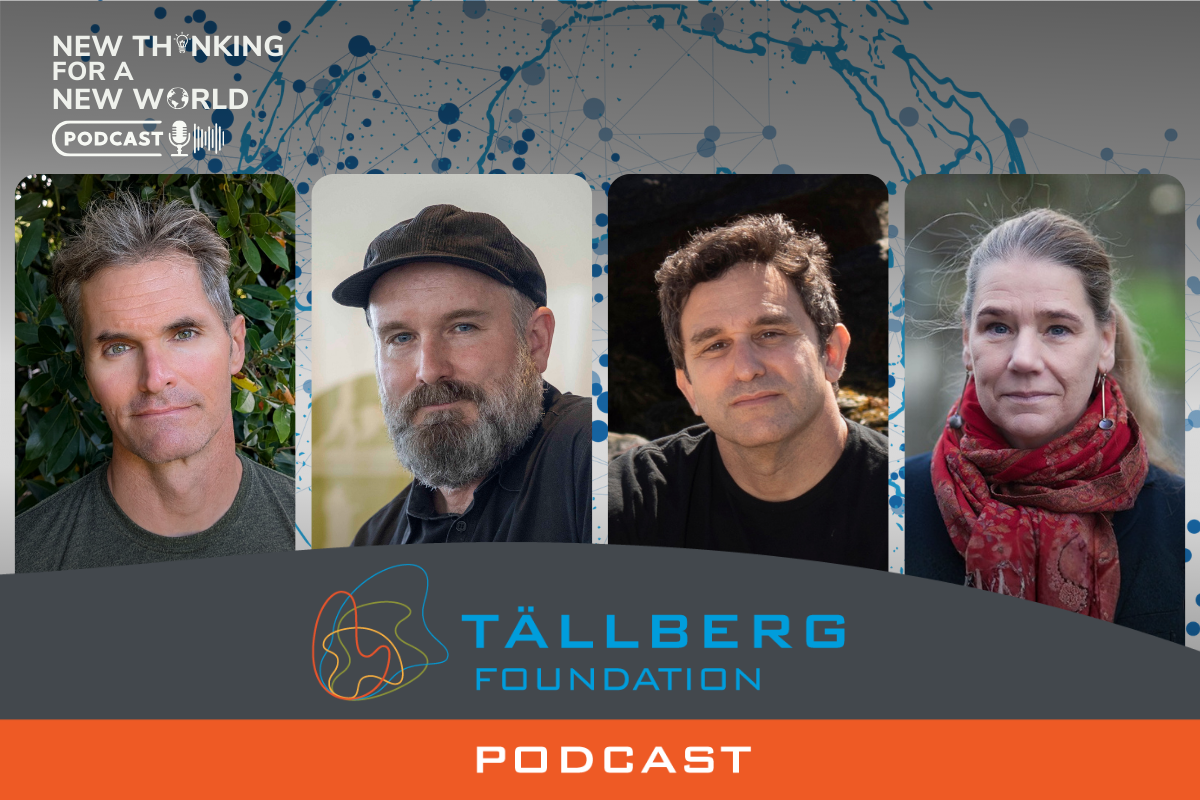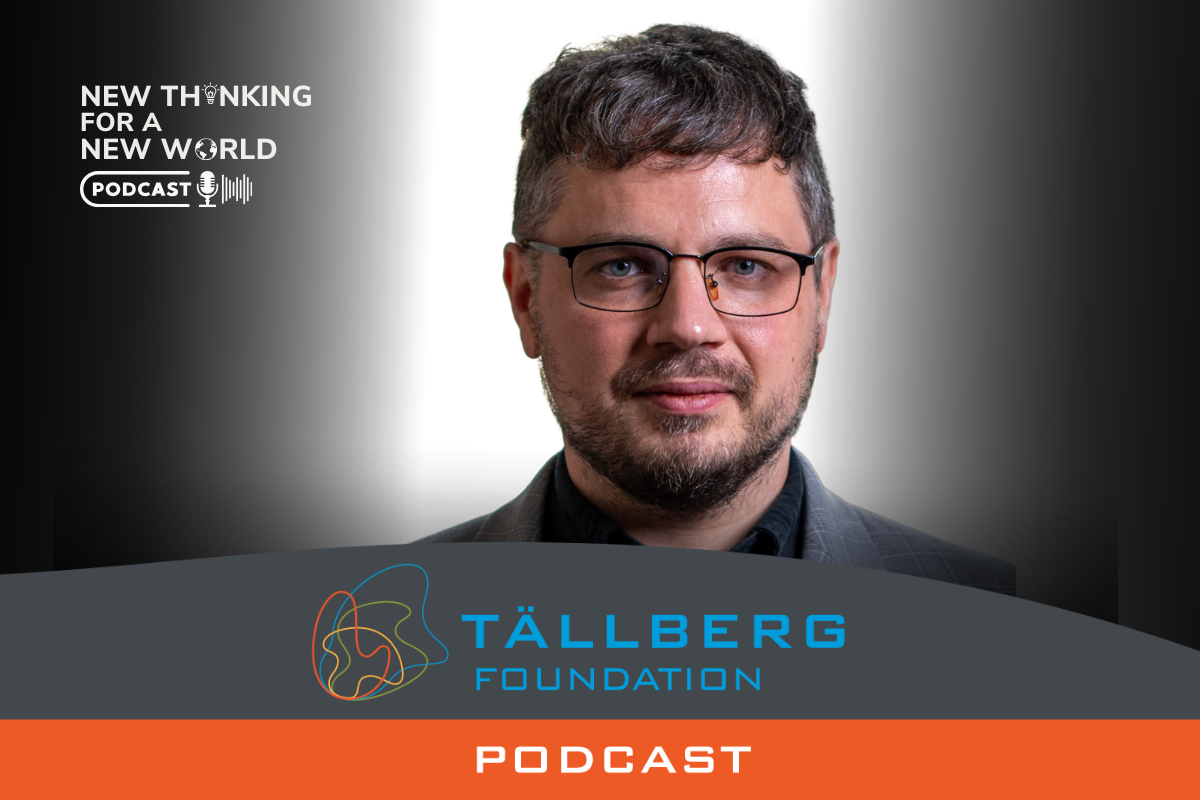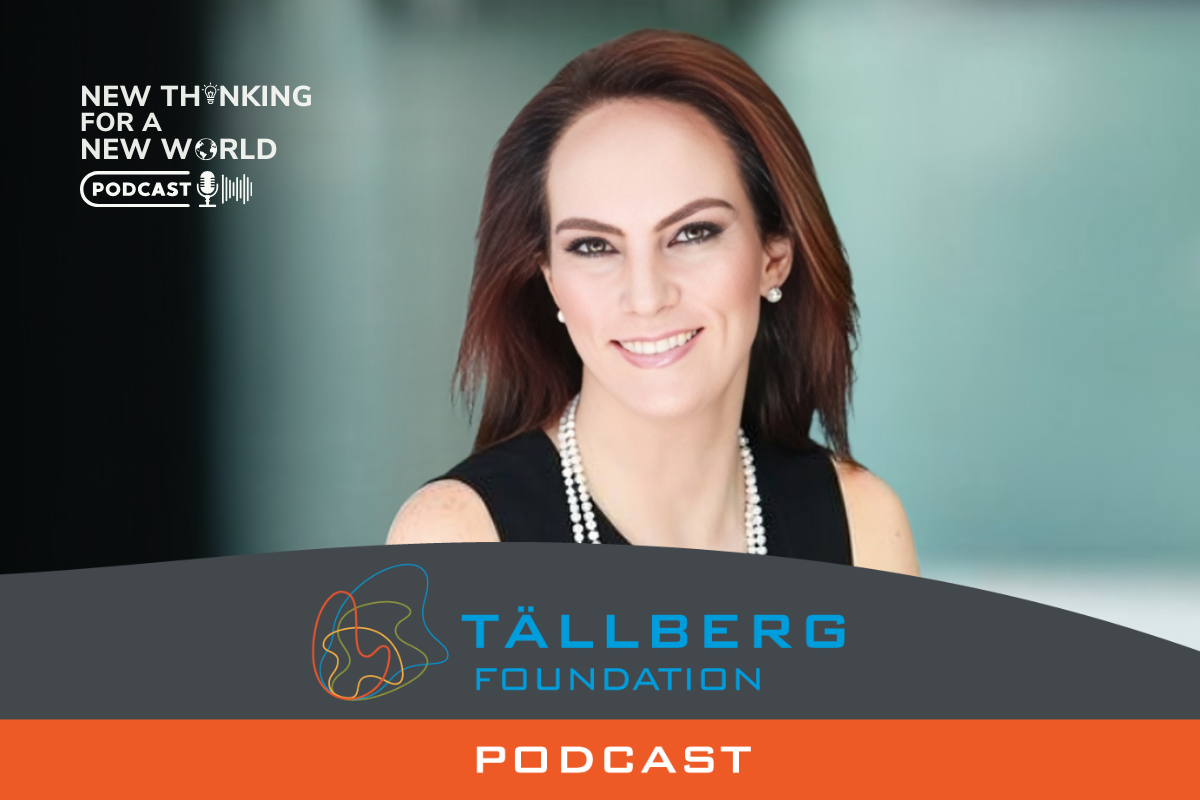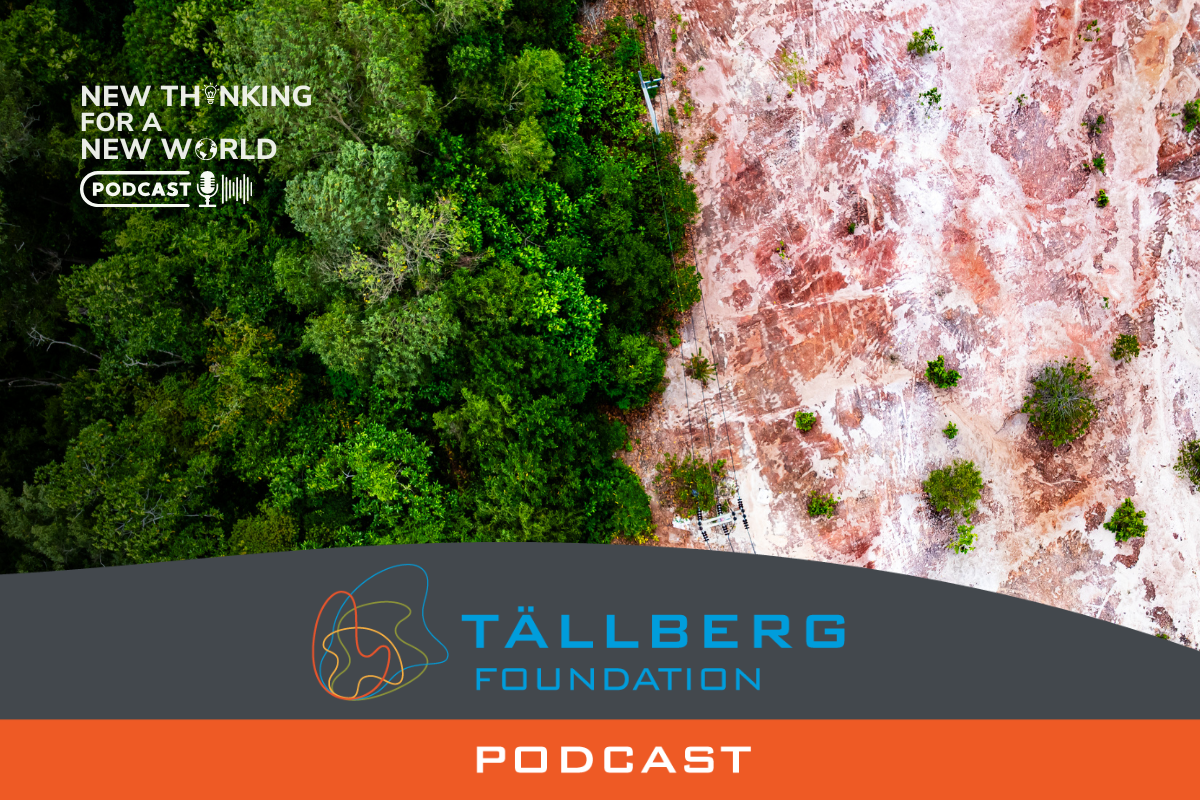David Kaplan believes that the food he and other scientists are growing in their labs can eventually feed a hungry world.
***
At least one in nine of the almost eight billion people who live on earth are undernourished. As the 18th century economist Robert Malthus forecast, we seem on a path where the planet can’t produce enough food for the projected 10 billion people who will be alive in 2050. Climate change and wars will only make the global food situation more precarious.
Is large scale famine inevitable?
David Kaplan, a global leader in the new field of cellular agriculture, doesn’t think so. He believes the steaks and fish fillets that he and other scientists are literally growing in their labs can eventually feed a hungry world.
What do you think? Comment below.
Listen to the episode here or find the New Thininkg for a New World podcast platform of your choice (Apple podcast, Spotify, Stitcher, Google podcast, Youtube, etc).
***
ABOUT OUR GUEST
 David Kaplan is the Stern Family Endowed Professor of Engineering at Tufts University and a Distinguished University Professor. He is Professor and Chair of the Department of Biomedical Engineering, with a joint appointment at Tufts Medical School and in the Department of Chemistry. His research focus is on biopolymer engineering, tissue engineering, regenerative medicine and cellular agriculture. He has published over 1,000 peer reviewed papers, is editor-in-chief of ACS Biomaterials Science and Engineering and he serves on many editorial boards and programs for journals and universities. He directed the NIH P41 Tissue Engineering Resource Center (TERC) that involves Tufts University and Columbia University for 15 years. His lab has been responsible for over 100 patents issued or allowed, and numerous start-up companies. He has also received a number of awards for his research and teaching and is an elected Fellow of the American Institute of Medical and Biological Engineering and the National Academy of Engineering.
David Kaplan is the Stern Family Endowed Professor of Engineering at Tufts University and a Distinguished University Professor. He is Professor and Chair of the Department of Biomedical Engineering, with a joint appointment at Tufts Medical School and in the Department of Chemistry. His research focus is on biopolymer engineering, tissue engineering, regenerative medicine and cellular agriculture. He has published over 1,000 peer reviewed papers, is editor-in-chief of ACS Biomaterials Science and Engineering and he serves on many editorial boards and programs for journals and universities. He directed the NIH P41 Tissue Engineering Resource Center (TERC) that involves Tufts University and Columbia University for 15 years. His lab has been responsible for over 100 patents issued or allowed, and numerous start-up companies. He has also received a number of awards for his research and teaching and is an elected Fellow of the American Institute of Medical and Biological Engineering and the National Academy of Engineering.




I acknowledge that to create a substance that tastes like a steak is the result of a lot of hours of work by many scientists and therefore a testament to our creativity. Yet, it will take at least 100x times this courageous work activity to reach the level where this steak/fish will contain those elements (and their combinations) that we need to be healthy, those so-called healthy nutrients. It is a bit like with the development of mobile phone: it will be a slow development. Still, contrary to the phone we need to go on with consuming the majority of healthy food that does not come from a petri dish but from the soil, which is such a complex machine, from which cellular agriculture is so far away and therefore my comment about the time it will take to replace conventional ag. The issue is that modern investment schemes are not based on accepting these long-term developments and therefore tend to make us believe the impossible until we realize how naive we were, not on the goal but on the timeline 🙂
Comment great presentation congratulations everyone.
Presentation and change climate very Nice
I would say that it is possible to achieve this with a clear-cut approach and methodologies. Considering Africa would greatly benefit from this research’s future breakthrough since there have been reports of food shortages on the continent in recent years. Customers would likely accept the products developed from this research when regulatory bodies certify them safe. It is important to work closely with the regulators to ensure good scientific practices are adhered to. Genetically modified organisms are yet to receive universal acceptance. Nothing good comes easy, the universal acceptance of the outcomes of this research would be a great revolution in the Biotechnological industry.
When synthetic sugar with calories and synthetic protein
can be created by a process using chemicals derived from minerals,
not organic substances, the synthetic food products will change humanity.
A marvelous informative talk by Dr. Kaplan…
I come to “cellular agriculture” from a different angle..In 1961/62 I was a student in the advanced lectures of a remarkable Cornell professor, Dr. F.C. Steward.
Dr. Steward was a leading figure in the development of modern plant physiology, cell biology, and plant tissue
culture, and his research in the late 1950s reshaped scientific knowledge of how plants regenerate. He is perhaps
best remembered, certainly most cited, for his demonstration that cells cultured from carrot roots can give rise
to embryo-like structures, and eventually to entire plants. This showed that individual plant cells are totipotent—
they retain all the genetic information necessary to regenerate and regulate a mature plant, with all its specialized
cells.
This finding revolutionized the world of plant cell biology. It established for the first time that the cumbersome
process of cultivating plant cuttings and shoots was no longer required to increase clones. Instead hybrids can
be propagated and mutants discovered much faster in the laboratory. His discovery of the means to obtain such
regeneration has provided a foundation that supports much of modern plant molecular biology.
Before Steward a very early proponent was Dr. Gottlieb Haberlandt:
His original idea presented in 1902 was called totipotentiality: “Theoretically all plant cells are able to give rise to a complete plant.”